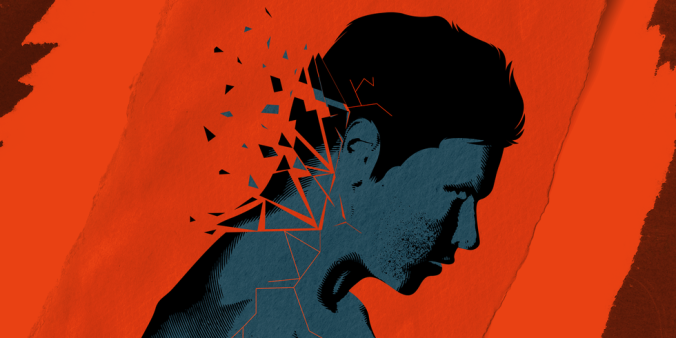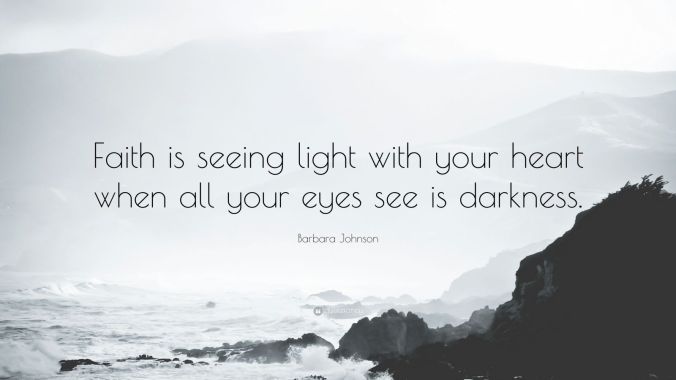
It’s been a while since I’ve given a full update on my mental health. Considering how insidious mental health issues are in our culture, I think it’s important to be accountable to someone and share both our successes and failures. The morning of the day I’m editing this, Anthony Bourdain had committed suicide in France. His family is devastated, and even his own mother had no idea about his intentions. Here’s a man who literally has everything and has travelled the world doing things I’ll never hope to experience, a man who has been celebrated as a professional the world over, sharing a meal in Vietnam with the President of the United States and winning Emmys…
And it isn’t enough. But it never is.
I know very little about Mr. Bourdain. Yet his death makes me incredibly sad. Travel writing is a career path I’ve considered looking into. Mr. Bourdain was an inspiration, a light to many people, and no doubt he saw light in the people he met. Where does peace come from when your mind can see only darkness? As Uncle Iroh says in Avatar: The Last Airbender, “If you look for the light, you can often find it. But if you look for the dark that is all you will ever see.” Even with all the goodness around him, did he only see the dark?

It seems like some people always walk in the light. Maybe some do. But I’m finding that this is rare if not impossible.
For the last decade of my life, I’ve known nothing but valleys of darkness landmarked by peaks of energy, positivity, and light. What I came to realize was hypomania came in irregular intervals every few months for a day at most while the remainder of the time I was lost, tired, and lonely. Hypomanic moments were magical. I felt like I’d come up for air after choking on sea water. I’m a writer, I’ve been writing fiction since I was seven, and hypomanic moments like those times enabled me to use my imagination again. (I realize the “depressed fiction writer” is a meme/trope at this point, but I’m also an English major and I write for a living, so it really is part of who I am.) After a night of no sleep desperately trying to hang on to the mania, I would inevitably come back down into the dark, and I wouldn’t be able to type a single word. My fiction sat stale in my head for years, and still does to an extent.
I was diagnosed with Bipolar Type II three years ago, and my exploration of medications began. I had no insurance, so I worked with my university’s health center. However, I never found the right medication, much less the proper dose. As much as I loved my psychiatrist for her efforts to help me, my university’s health center just isn’t a proper professional medical facility. I had tried everything: Lamictal, Latuda (worst medicine ever), Risperidone, Oxcarbazepine, Wellbutrin, Lithium, Depakote, Effexor… Without a job, I then went through a state mental health program that didn’t do much good for me at all; my doctor there put me on Wellbutrin to give me more energy, but it also made me anxious and panicky — I would break down into tears at the slightest provocation. It took finding a full-time writing job that took a chance on me and getting insurance to finally be able to see a psychiatrist at my local hospital.
Finding the right doctor with the right experience has made all the difference.
Turns out I just hadn’t taken enough Effexor. My doctor upped my dose of Effexor and risperidone, took me off the anxiety-inducing Wellbutrin, and the effect has been like walking out of a dark cave. I can write again. It feels like a never-ending hypomanic episode compared to where I was. I recently got a new job, and I can write without any mental restrictions. In fact, I’m writing so much that I’m starting to run myself ragged by staying up until two in the morning every night because I’m so afraid that this newfound mental strength (which only a few months ago I equated with a limited-time hypomanic state) is going to go away.

St. Herman’s Cave in Belize. Kinda feels like that.
I have a fear I never thought possible: I’m afraid that my “happiness” is going to vanish. That I’ll soon lapse back into the dark and not be able to write again. But I also know that I’m not on a maximum dose of Effexor, and things can always be adjusted. I’m in good hands. While treating mental issues with modern medicine is still scattershot when we hope it would be hyper-accurate instead, it got me to this point. I can write again. Even if it doesn’t last, my terrible journey has at last brought me to a state of peace that I’ll never forget. It’s been worth the mental and financial cost.
The tough part? I had been on Effexor before. But the dose had been so low, it hadn’t done anything for me. Is it frustrating to me to think that I might have gotten to this point of stability sooner had I known this? Sure, a little bit. But I know a lot of people who have gone through my same process of trying medication after medication and finding absolutely no results. Finding the right mixture of medicines to give me a solid mental foundation wasn’t a simple process. I don’t know of anyone who diagnosed and “solved” their condition quickly.
Every person is so unique, and no two people will experience the same medicines in the same manner (except with Latuda, surprisingly enough). We think we live in the “Golden Age of Medicine”, and compared to even the 1950s, this is true… But treating mental illness is still almost recklessly imprecise. Even in the United States, complete and holistic treatment is accessible to few. Psychiatrists are sometimes poorly trained to recognize symptoms, and medications are doled out too readily to fix issues that may overlap with other conditions (major depression and bipolar type-II being good examples).
But despite all the obstacles I faced, I found a medicine that has helped me rise above the darkness. “Recovery”, for what that word is worth to a mental illness, is possible. Attaining at least a sense of normalcy and stability is possible. It took the right combination of luck in my job search, finding affordable insurance through the government marketplace, and having access with a professional psychiatrist who recognized what I needed. Not to mention a whole lot of medication experimentation. No matter where your journey takes you with your mental health, never lose hope.

Someone on my LDS mission asked me why I have faith in anything. “Survival,” should have been my reply.
Always be looking for the light in the world. Play with a puppy. Listen to a baby laugh. Rock out to music you haven’t listened to in years. Listen to the birds. Meditate. Pray. Write down your thoughts and feelings in a journal or on a private blog (or make it public like me). Get the right amount of sleep, eat right, drink lots of water, and keep fighting.
You’ll get the dark, but you’ll also get the light. Life is a package deal, but so worth experiencing until you can’t experience more. Whether you seriously wonder if you have a mental health issue or have been fighting a diagnosed illness for years and years, know I’m back here cheering for you. You’ll find clarity and contentment again. My journey isn’t done; as my other mother says, and God willing, I’ve still got a lot of years left in me. I might relapse, I might not. But I’ll have had this time of stability to enjoy. And that’s worth any price.
So glad to hear you’ve found something that’s working for you. 🙂
LikeLiked by 1 person
Meeeeee too.
LikeLike
I love to read people’s journeys. It is in the living that we learn so much. Peace!
LikeLiked by 1 person
Thank you so much! I’m learning more and more every single day. 😀
LikeLiked by 1 person
keep fighting Friend. God would not ever leave you, hold on tight to God, and stay strong. ❤ ❤
LikeLiked by 1 person